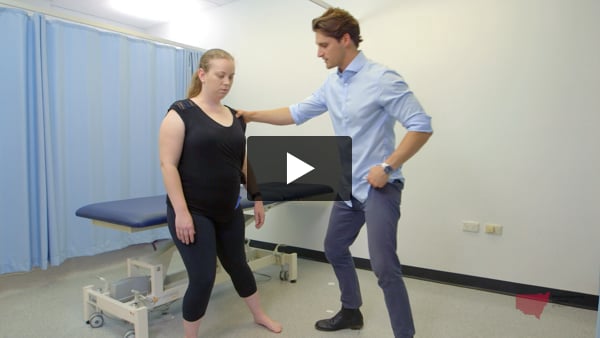No images? Click here
Physiotherapy Council of NSW Newsletter
June 2023

What is the Physiotherapy Council of NSW?
The Council, under the Health Professions Council Authority (HPCA), manages complaints about the conduct, performance and health of registered health practitioners and students in NSW.
In contrast, the Physiotherapy Board of Australia manages national registration requirements, accreditation, and complaints about practitioners in jurisdictions outside of NSW.
As part of the National Registration and Accreditation Scheme, we manage complaints in NSW together with the Health Care Complaints Commission (HCCC). This involves sharing of information and making joint decisions on the most effective ways of handling the complaint.
When managing complaints, we ensure that our assessment and decision-making processes are fair and consistent. First and foremost is the need to protect the public, keep them safe, and ensure that patient records adequately reflect the treatment that has been provided.

We are committed to helping physiotherapists practice safely and promote education and research to enable this. Our recent activities include a video series and podcast to help promote good decision making in the varied frameworks that physiotherapists work within.
As physios we work closely with patients, often over long periods of time. It is sometimes a balancing act between being professional and friendly. One of the areas where the Council has seen physios get into trouble is not maintaining appropriate professional boundaries. Take a look at the following scenario.
What do you think the best way to deal with this situation is?
Once you’ve thought about it, follow the link below to see how this physio might get themselves into a tricky situation – and then have a look at the recommended course of action, along with how not to deal with it!
https://www.physiotherapycouncil.nsw.gov.au/physiotherapy-council-educational-videos
Please feel free to share this with your colleagues – it can make a valuable Inservice topic!
Are your CPD records up to date?
Continuing professional development (CPD) is how physiotherapists maintain, improve and broaden their knowledge, competence and expertise whilst developing professional and personal qualities throughout their professional lives. CPD requirements for all registered physiotherapists are outlined in the Physiotherapy Continuing Professional Development Registration Standard.
The Physiotherapy Board of Australia (the Board) recommends that you keep evidence of CPD for a period of five years from completion of the CPD activity. It states that records will be required when a practitioner is subject to audit. A practitioner may also be required to produce evidence of CPD if they are subject to a notification/complaint.
Each physiotherapist is obligated to record their CPD and produce evidence of this when requested by a regulator. It is important that you do not rely on your employer's education system or online records alone as you may experience challenges accessing your employer’s (or previous employer’s) records if the Board or Physiotherapy Council asks you to provide CPD records. Therefore, it is important to ensure that you keep your own CPD records and that they are up to date.
Further information about CPD requirements and record keeping can be found in the PBA Guideline: Continuing Professional Development, which also includes a CPD portfolio template.
Meet our Council Members
Each newsletter, we aim to profile two of our Council Members. This newsletter features profiles of Toni Andary and Katherine Maka OAM.
Profile: Toni Andary, Deputy President of the Physiotherapy Council of NSW

Toni has been a Practitioner Member of the Physiotherapy Council of NSW since 2017. He is the current Deputy President and chairs one of the complaints and notification committees. Toni is also an active member of the Australian Physiotherapy Association (APA) and has served on a number of committees. He previously chaired the APA’s National Professional Standards Panel and is a member of the Australian Physiotherapy Council’s accreditation committee.
Toni is a knowledgeable professional, having worked in public, private, education and governance roles.
Profile: Katherine Maka OAM, Practitioner Member of the Physiotherapy Council of NSW

Katherine is an accomplished senior physiotherapist and manager in the public health system, with over 20 years of experience working in both the public and private sector. She is a member of the Australian Physiotherapy Association (APA) and has held positions such as NSW APA Branch president, member of the National Advisory Council and Chair of the Emergency Department Network. She has a proven track record in operational management and clinic leadership, receiving awards by a local health district, the APA, the Agency for Clinical Innovation (ACI) and Ducere Global Business School. Katherine was recently responsible for leading a COVID response team working as a deputy controller.
Her love of quality improvement and research has led to changes in practices with physiotherapists working in Neurosurgical clinics. Katherine has been author and co-author of 15 research publications. She serves on many public hospital committees such as the National Standard committee, NSW Physiotherapy Advisory Network, Accreditation Steering Committee, Bariatric Steering committee and the ACI Musculoskeletal Group.
Katherine has completed post graduate studies, completing an MBA in leadership and Management, a Post Grad in Clinical Redesign and a Diploma of Leadership and Management. She is an accredited trainer in Accelerated Implementation Methodology which have all equipped her with skills to lead her passion for quality improvement and evidence-based service delivery.
Katherine is highly skilled in project management, is an excellent communicator and is passionate about driving a positive workplace culture.
As a Practitioner Member of Council, Katherine appreciates the value of utilising good listening skills and the importance of being able to problem solve in real time, always taking into account the importance of protecting the patient and the practitioner to have a fair hearing and the best outcome.
Do you need further details?
The Council website offers educational resources to support practitioners with abiding by the professional Code of Conduct.
For more information on how to meet your professional responsibilities under the National Law or to review the Code of conduct for registered practitioners, visit the Board's website.

